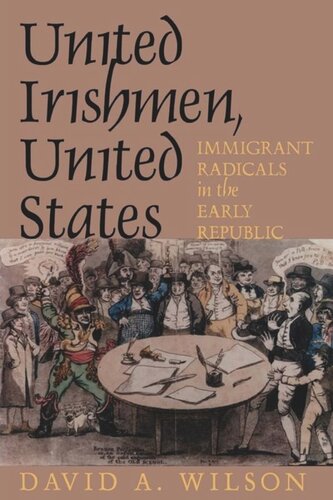

Most ebook files are in PDF format, so you can easily read them using various software such as Foxit Reader or directly on the Google Chrome browser.
Some ebook files are released by publishers in other formats such as .awz, .mobi, .epub, .fb2, etc. You may need to install specific software to read these formats on mobile/PC, such as Calibre.
Please read the tutorial at this link: https://ebookbell.com/faq
We offer FREE conversion to the popular formats you request; however, this may take some time. Therefore, right after payment, please email us, and we will try to provide the service as quickly as possible.
For some exceptional file formats or broken links (if any), please refrain from opening any disputes. Instead, email us first, and we will try to assist within a maximum of 6 hours.
EbookBell Team

5.0
30 reviewsAmong the thousands of political refugees who flooded into the United States during the late-eighteenth and early-nineteenth centuries, none had a greater impact on the early republic than the United Irishmen. They were, according to one Federalist, "the most God-provoking Democrats on this side of Hell." "Every United Irishman," insisted another, "ought to be hunted from the country, as much as a wolf or a tyger." David A. Wilson's lively book is the first to focus specifically on the experiences, attitudes, and ideas of the United Irishmen in the United States.Wilson argues that America served a powerful symbolic and psychological function for the United Irishmen as a place of wish-fulfillment, where the broken dreams of the failed Irish revolution could be realized. The United Irishmen established themselves on the radical wing of the Republican Party, and contributed to Jefferson's "second American Revolution" of 1800; John Adams counted them among the "foreigners and degraded characters" whom he blamed for his defeat.After Jefferson's victory, the United Irishmen set out to destroy the Federalists and democratize the Republicans. Some of them believed that their work was preparing the way for the millennium in America. Convinced that the example of America could ultimately inspire the movement for a democratic republic back home, they never lost sight of the struggle for Irish independence. It was the United Irishmen, writes Wilson, who originated the persistent and powerful tradition of Irish-American nationalism.